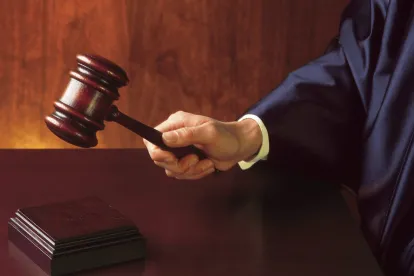The Hungarian Parliament on November 22, 2016 adopted the new Hungarian Code on Civil Proceedings (New Code) which comes into force on January 1, 2018. The New Code is a huge challenge for the entire Hungarian legal community since its application requires a different approach from what has so far been customary for both judges and litigators.
Legal professionals and businesses have one year to prepare for the application of the New Code. In order to help businesses to be prepared, we organized a conference in October, together with AmCham, on the New Code. The ministerial commissioner responsible for the legislation presented the legislative concepts, principles and new institutions of the New Code to the attending legal counsels of Hungarian and multinational companies.
One of the most important innovations introduced by the New Code is the divided litigation structure. First instance proceedings are divided into two phases, separated both in time and by functions – a preparatory phase and hearing phase. The aim of the divided litigation structure is to enhance the concentration of the lawsuit and, as a result, improve litigation efficiency and predictability. Based on the Code currently in effect, the court sets a date for the hearing upon receiving a statement of claim and the defendant is allowed to present its defense even orally at the hearing. In most cases the claim and the defense can be changed at any time practically without restriction; similarly, a counterclaim or set-off may be filed at any time during the first instance proceedings.
According to the New Code, the written defense, the plaintiff’s reply pleading, the defendant’s response document, the counterclaim and/or the set-off, whose contents is regulated in detail in the law, as well as the proofs and motions for evidence must be presented in the preparatory phase obeying very strict deadlines. In the preparatory phase, the statements regarding law, legal title and facts, the parties’ petitions, as well as the participants of the lawsuit, are to be finally determined. After closing the preparatory phase, as a general rule, the claim, the defense or the counterclaim may not be changed, and any further evidentiary motions shall be rejected. The purpose of such strict rules is that both the court and the parties be in a position to see the framework and the contents of the legal dispute, and concentrate the hearing phase on the presentation of evidence, and the decision on the merits. In the substantive hearing phase the opportunity to change the petitions (claim, counterclaim) is very narrow, limited to reasons falling out of one’s control and to separate specific requests. The new set of rules relies more on the liability of legal representatives, but, at the same time, puts further burdens on the courts because in the preparatory phase judges are continuously required to make decisions within stringent deadlines.
The New Code re-regulates the rules of evidence taking, including the use of unlawful evidence in a lawsuit, and does not impose an absolute ban. Expert evidence rules have also changed significantly. Parties to a lawsuit are entitled to provide an expert opinion in three ways – by way of a private expert, an expert appointed in a different proceeding or an expert appointed by the proceeding court – and the party is entitled to choose among them. The New Code stipulates that the opinions of a private expert and the judiciary expert appointed by the court have the same evidentiary value. The New Code further regulates two new forms of collective enforcement of claims (class action for public interest and joint lawsuit).
Although the New Code shall be effective from January 1, 2018, we cannot get rid of the current Code yet – its provisions must be applied for ongoing proceedings begun prior to January 1, 2018 which will continue to be governed by such old rules.




 />i
/>i

